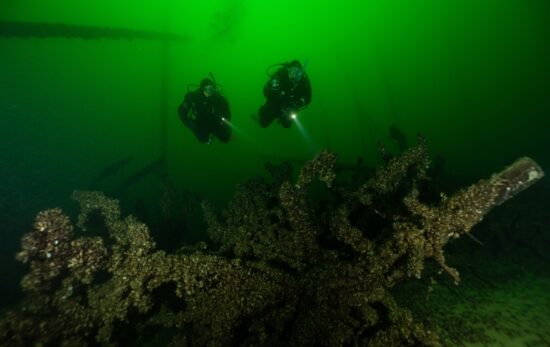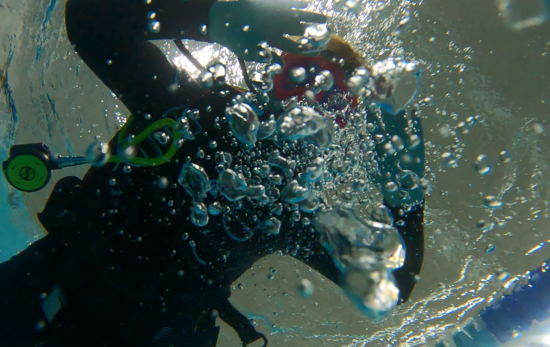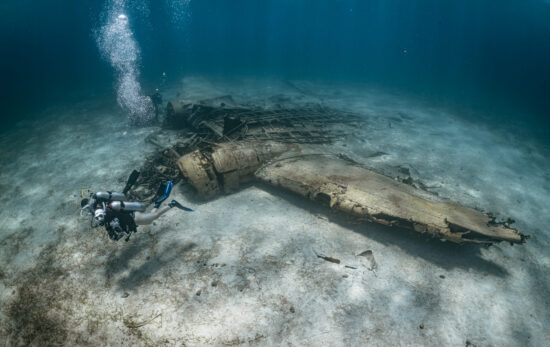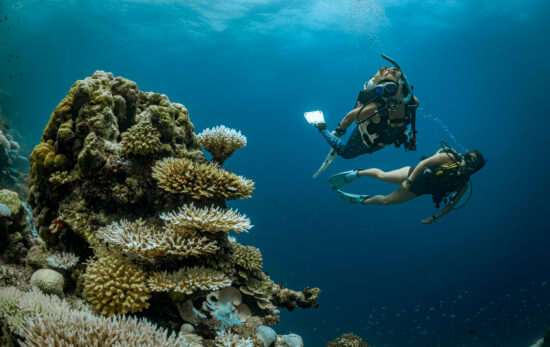Even if you have dived at a dive site many times before, you see a new world at night. The kelp forest on the coast of South Africa is never asleep. When the sun begins to set, the diurnal creatures retreat, and nocturnal creatures emerge.
With the beam of your torch illuminating only small parts of the reef, spotting exciting species becomes even easier. Exploring the kelp forest at night allows you to observe creatures rarely seen during the day – such as sleeping fish, bioluminescent jellyfish, and cuttlefish sending out flashing signals with their skin pigment cells – providing a truly mystical experience.
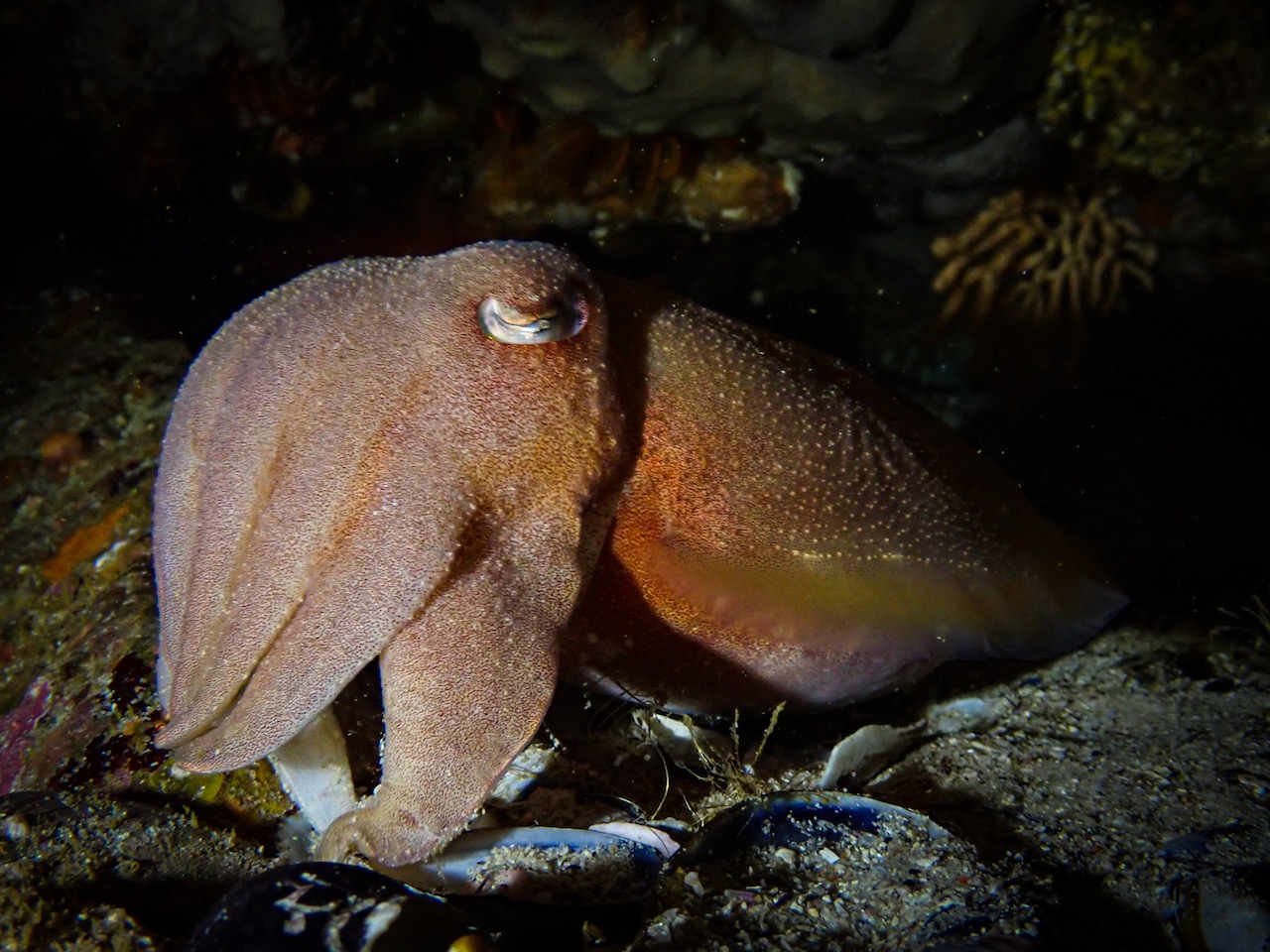
The best way to begin a night dive is right after sunset. Use the last light of the day to change into your wetsuit and conduct your dive briefing. Then submerge as the light begins to fade, and you can witness the behavioural change of life inside the kelp forest.
Diving at night can be intimidating, but you will be more comfortable with the right planning and safety. Take a good dive buddy, and explore the sites you already know. You should have completed multiple day dives before. Make sure that everyone has a torch (flashlight), preferably even bringing a backup light so that when your primary torch fails, you can rely on your backup light.
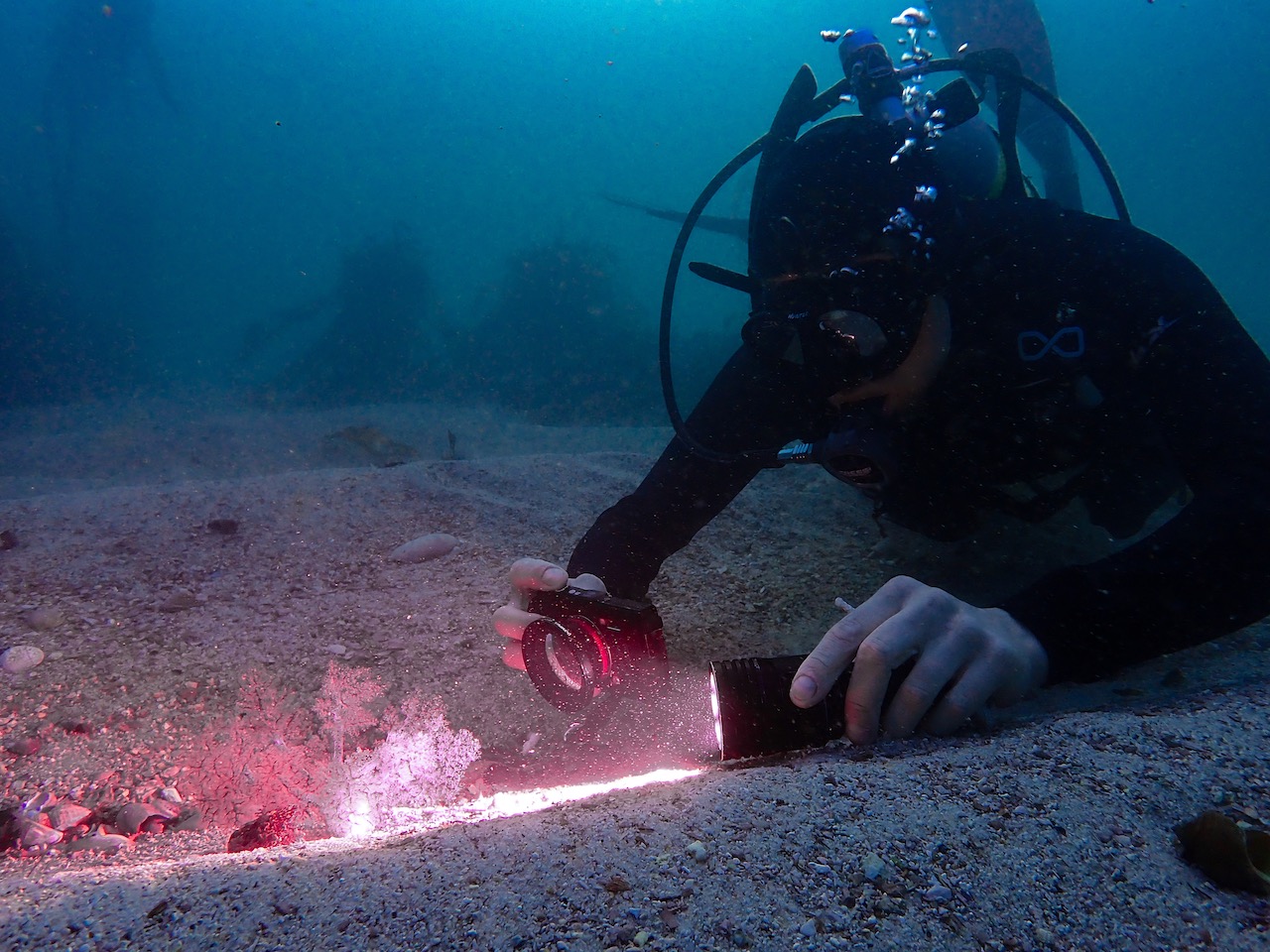
Brief your dive buddies to stick together and refresh the dive signals, using the torch to communicate. Waving your torch back and forth horizontally in front of your buddy to catch their attention and up and down to signal there is something wrong. Circle your torch to do the ‘OK’ sign. As most SPGs (Submersible Pressure Gauges) glow in the dark, shining your light on the SPG will briefly charge it, allowing you to check your air consumption.
When you encounter animals, they might be attracted by light. Please always respect them and give them space, so they’re not disturbed by your presence.
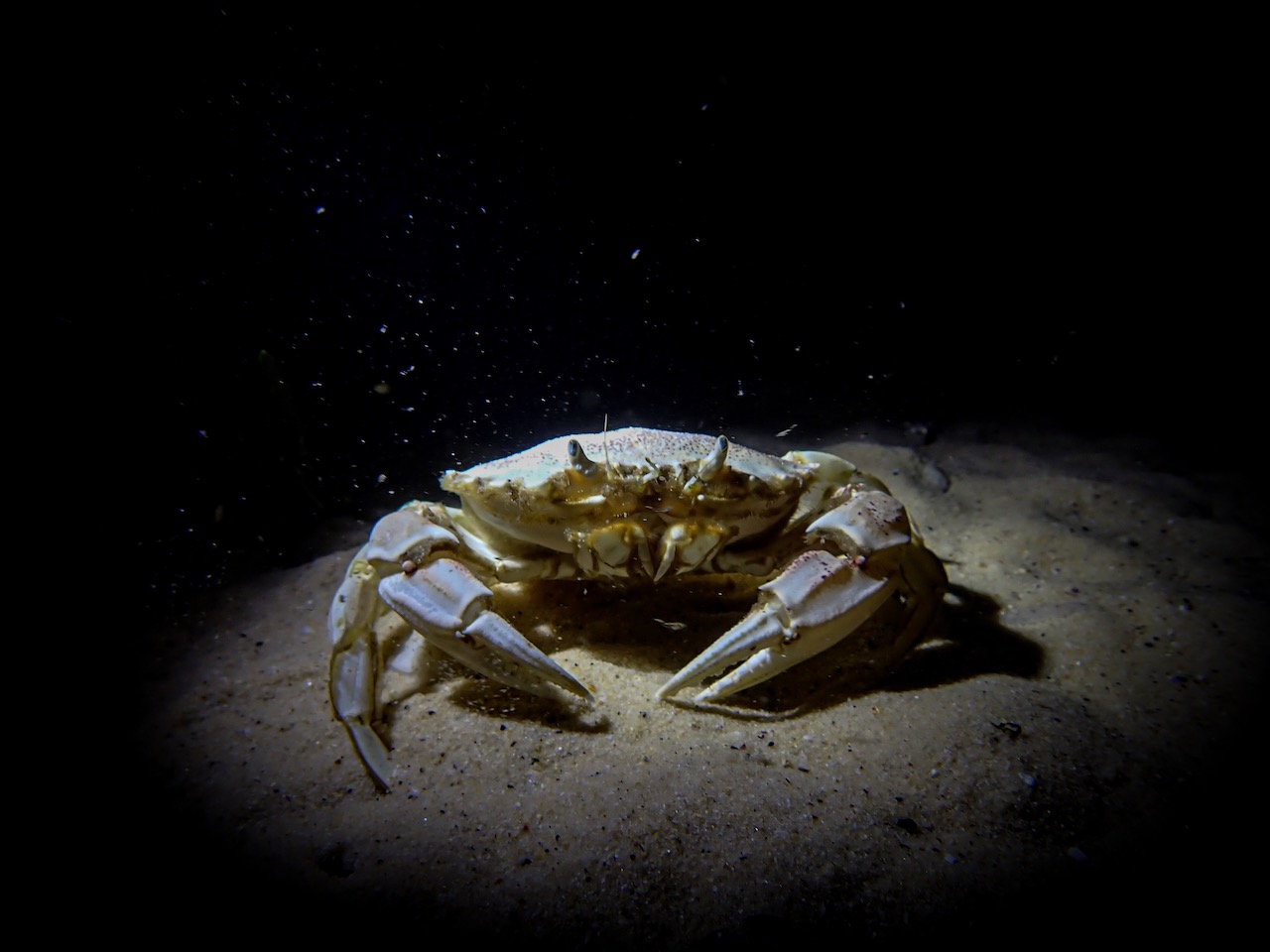
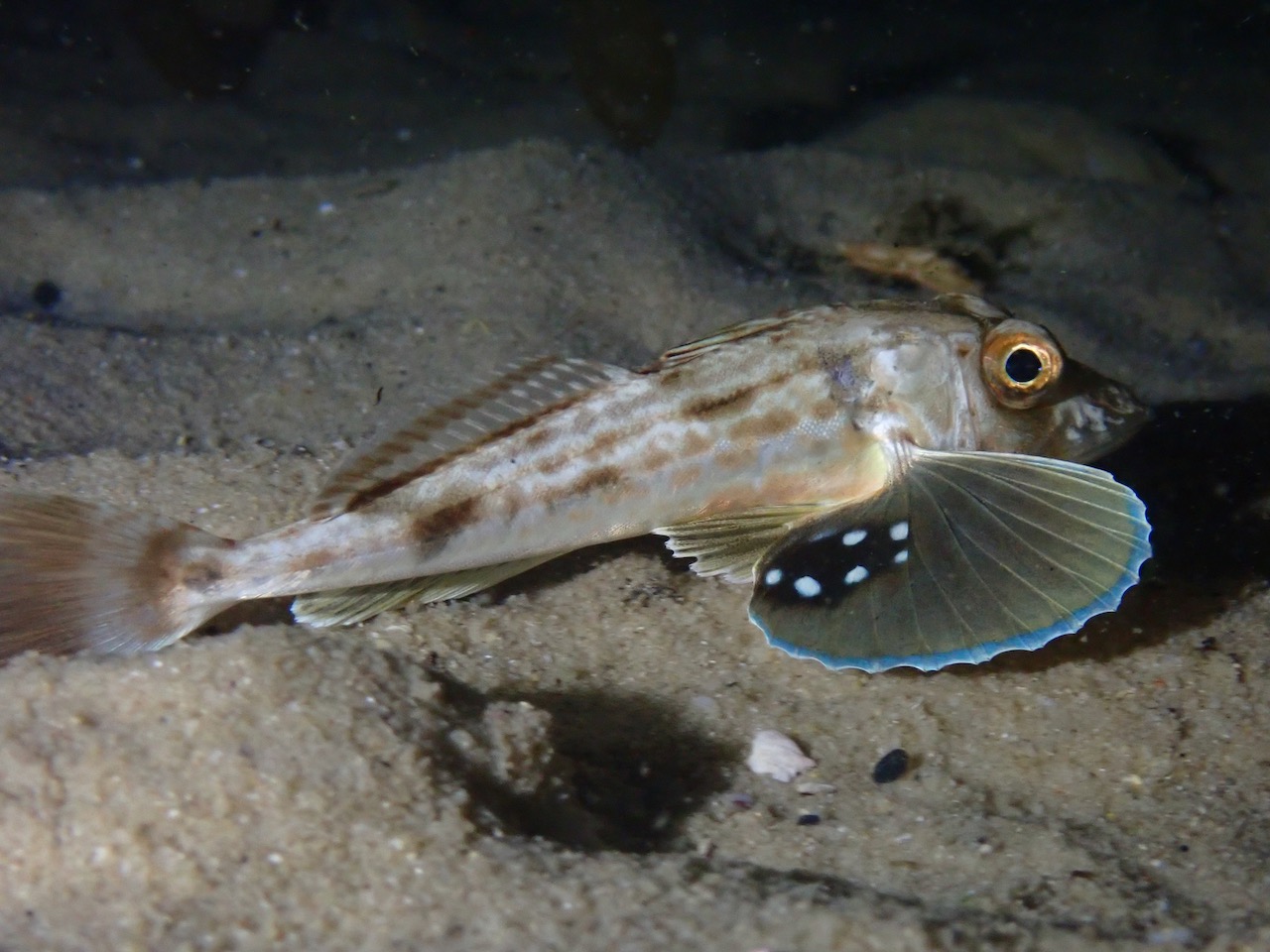
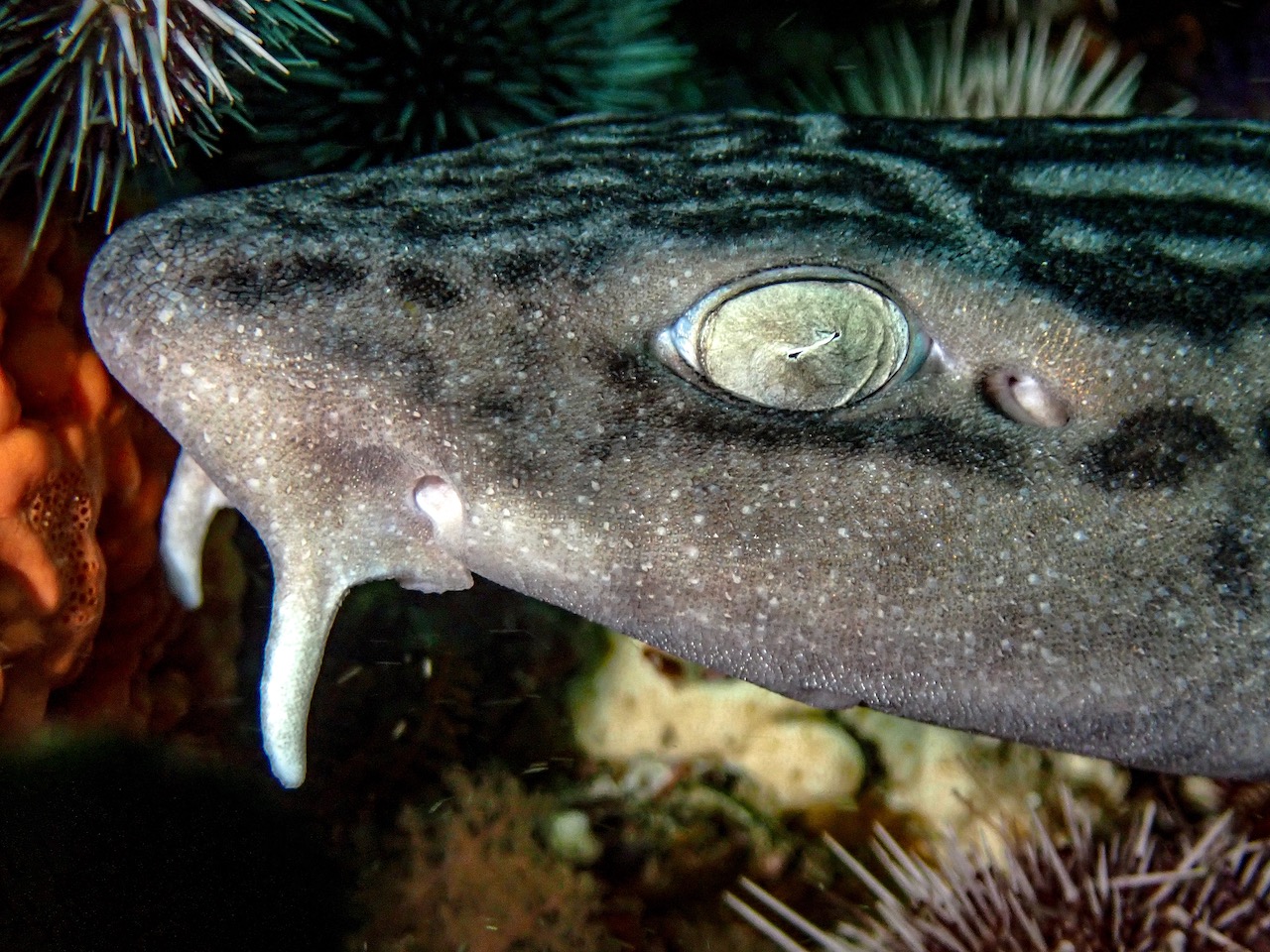
For those looking for an unforgettable experience, night diving in Cape Town could be just what you need! It offers a fantastic view of underwater life like you’ve never seen before.
Interested in night diving? Sign up for the PADI Night Diver specialty course to learn more about the thrills of diving at night, underwater hand signals and what you can expect to see underwater after dark.
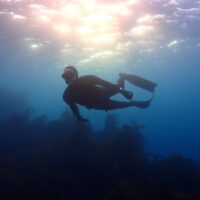
This blog was written by Guest Writer Gunnar Oberhoesel, a PADI Freediver and Divemaster based in South Africa. For more information about night diving in Cape Town, reach out to Gunnar here.
